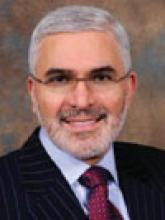Change is coming for continuing medical education (CME). A cloud of conflict of interest has shrouded any person or activity that receives pharmaceutical funding, including the venerable institution of CME. This is a big deal because all health practitioners rely on CME programs to meet requirements for license renewal and to keep up with medical advances.
Attitudes about commercial support of CME have changed, with some organizations calling for elimination of all industry funding (Table). Pressure to strip commercial support from CME is equivalent to draining blood from a living organism; it can have dire consequences if done precipitously.
CME has grown rapidly into a big business. Its commercial support quadrupled from $300 million to $1.2 billion between 1998 and 2006, according to the Accreditation Council for Continuing Medical Education. Another $1.2 billion came from other sources. Here is who received the $2.4 billion in CME funds in 2006: 34% went to publishing and medical education companies, 33% to physician organizations, 18% to medical schools, and 15% to other CME providers (such as hospitals).
The urgent question about sustaining CME has become: where will $1.2 billion come from if not from industry? Eleemosynary is likely to provide only a fraction of support. Shifting the cost to attendees could make CME fees prohibitively high (>$1,000 for a 1-day symposium).
It’s no wonder that CME providers feel anxious about the perception of undue influence on their programs, while at the same time pharmaceutical companies are pulling back from sponsoring CME. But how do psychiatric practitioners feel about this issue?
Table
Industry support of CME: Evolution of standards
| Year | Development |
|---|---|
| 1992 | ACCME issues first standards for commercial support |
| 1994 | ACCME updates standards to ensure that CME programs are free of bias and beyond the control of persons or organizations with an economic interest in influencing the content |
| 2007 | AAMC proposes principles to guide medical schools and teaching hospitals in developing policies to manage industry gifting practices and financial support for medical education |
| 2007 | U.S. Senate finance committee expresses concern that “commercial sponsorship of CME is designed to increase sales of the sponsor’s drugs through improper influence” |
| 2008 | Josiah Macy, Jr. Foundation calls for end to industry support of CME |
| 2009 | IOM recommends eventual cessation of commercial support of CME |
| AAMC: Association of American Medical Colleges; ACCME: Accreditation Council for Continuing Medical Education; CME: continuing medical education; IOM: Institute of Medicine | |
Practitioners’ attitudes about CME funding
To find out, I polled 200 mental health professionals at a CME symposium in October 2008. The results are interesting and contrary to what one might assume to be prevailing perceptions. Most respondents (69%) said industry support biases CME content at least sometimes. Most agreed CME programs with multiple sponsors are less likely to be biased than single-sponsored programs (29% “strongly agree,” 53% “agree”). Nearly all (90%) said CME programs generally meet their educational needs.
If CME funding must come from nonindustry sources, only 17% of respondents favored higher registration fees. Other sources they endorsed were private foundations (39%), online CME (30%), and grand rounds (5%). View complete survey results.
Based on these responses, here are my predictions:
- CME will survive, but its funding sources will change.
- Industry sponsorship of CME will not disappear, but it will decline substantially (a trend that has already begun). Funds from multiple pharmaceutical companies might be pooled and allocated to applicants by a third party.
- Eleemosynary will probably increase, but charity will remain a small fraction of CME support.
- The number of CME programs will decline (the American Psychiatric Association has cut sponsored CME symposia at their annual meeting by about 70%).
- Online CME will grow.
- Health professionals will increasingly participate in online learning through educational Web sites, including those of medical journals.


